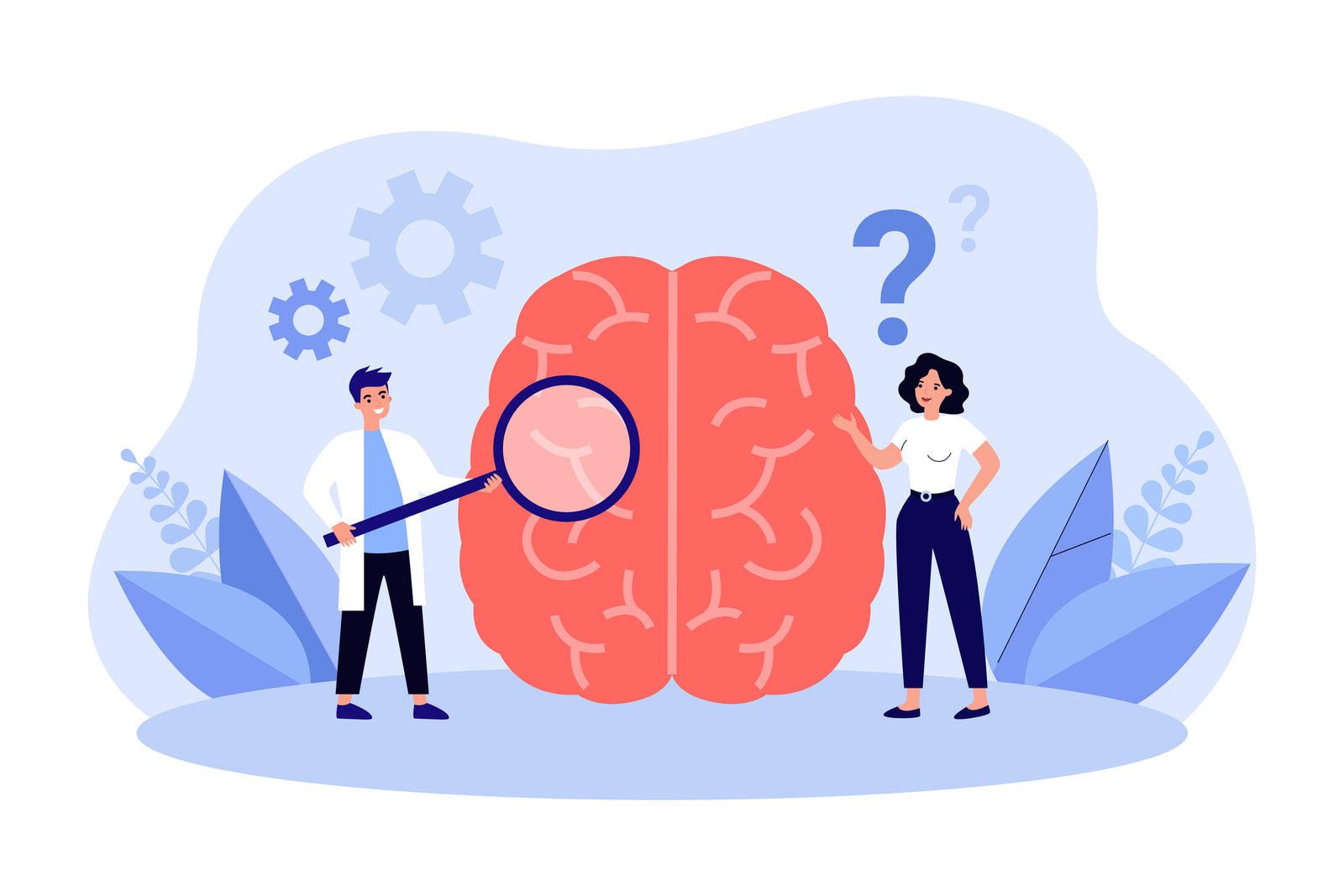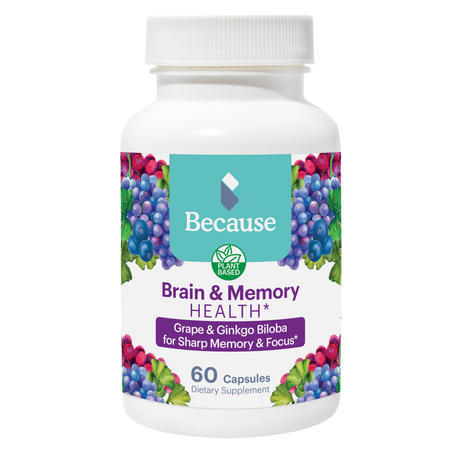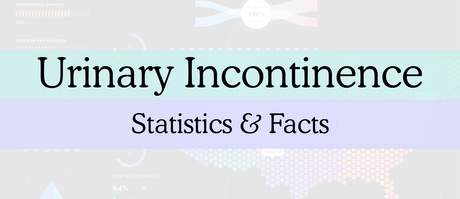Memory is a fundamental aspect of human cognition, allowing us to recall past experiences and information. As we age, it is common to experience some changes in memory function. However, it can be challenging to determine whether these changes are a normal part of aging or indicative of a more severe condition, such as dementia or Alzheimer's disease.
As we age, it is not uncommon to experience some changes in these different types of memory. For example, it is normal to have occasional lapses in memory, such as forgetting where we placed our keys or the name of someone we just met. These minor memory lapses are often referred to as "senior moments" and are considered a normal part of the aging process.
To gain a better understanding, let's delve into the different types of memory.

1. What are the different types of memory?
Memory can be broadly categorized into two types: short-term memory and long-term memory.
Short-term memory refers to the ability to hold a small amount of information in mind for a brief period, such as remembering a phone number temporarily. On the other hand, long-term memory involves the storage and retrieval of information over an extended period, allowing us to remember events from the past, such as personal experiences or historical facts.
Within long-term memory, there are further subdivisions, including episodic memory, semantic memory, and procedural memory.
Episodic Memory:
Episodic memory is responsible for recalling specific events and personal experiences. For example, it allows us to vividly remember our first day of school or a memorable vacation. It is like a mental diary that stores our life experiences and allows us to relive them in our minds.
Semantic Memory:
Semantic memory involves the retrieval of general knowledge and facts about the world. It allows us to remember information that is not tied to a specific personal experience. For instance, it enables us to recall historical events, scientific concepts, or the meaning of words. Semantic memory forms the foundation of our understanding of the world and helps us make sense of the information we encounter in our daily lives.
Procedural Memory:
Procedural memory, on the other hand, is responsible for remembering how to perform certain tasks or actions. It is often referred to as "muscle memory" because it involves the recall of motor skills and procedures. Procedural memory allows us to effortlessly ride a bicycle, swim, or play a musical instrument. It is a type of memory that is developed through practice and repetition, and once learned, it becomes ingrained in our subconscious mind.
These different types of memory work together to provide us with a comprehensive and multifaceted ability to remember and recall information. They play a crucial role in our daily lives, allowing us to navigate the world, learn new things, and form meaningful connections with others. Understanding the intricacies of memory can help us optimize our learning strategies, improve our cognitive abilities, and enhance our overall quality of life.

2. Are dementia & Alzheimer’s disease the same thing?
While Alzheimer's disease is the most common cause of dementia, dementia itself is an umbrella term for a range of conditions that affect memory and cognitive function. Dementia refers to a group of symptoms characterized by a decline in cognitive abilities, such as memory loss, difficulty with problem-solving, and changes in behavior. Alzheimer's disease specifically refers to a progressive brain disorder that causes memory loss and cognitive decline. Other types of dementia include vascular dementia, frontotemporal dementia, and Lewy body dementia.
It's important to note that not all memory problems are indicative of dementia or Alzheimer's disease. Some memory changes can be a result of stress, sleep disturbances, medication side effects, or other medical conditions. If you or your loved one are experiencing memory issues, it's crucial to consult with a healthcare professional for a proper diagnosis.
Let's delve deeper into the different types of dementia.
Vascular Dementia:
Vascular dementia, also known as multi-infarct dementia, is caused by reduced blood flow to the brain. This can occur due to a stroke or other conditions that damage blood vessels in the brain. The symptoms of vascular dementia can vary depending on the location and extent of the brain damage, but they often include problems with memory, thinking, and reasoning.
Frontotemporal dementia:
Frontotemporal dementia, on the other hand, is a group of disorders characterized by the degeneration of nerve cells in the frontal and temporal lobes of the brain. This type of dementia typically affects behavior, personality, and language skills. People with frontotemporal dementia may exhibit changes in social behavior, become impulsive, and have difficulty with language comprehension and expression.
This type of dementia can also lead to issues with muscle control and balance which can lead to the development of functional incontinence.
Lewy body dementia:
Lewy body dementia is another type of dementia that is caused by the presence of abnormal protein deposits, called Lewy bodies, in the brain. This condition shares some similarities with both Alzheimer's disease and Parkinson's disease. People with Lewy body dementia may experience visual hallucinations, fluctuations in alertness and attention, and motor symptoms such as stiffness and tremors.
It is important to understand that while Alzheimer's disease is the most common cause of dementia, each type of dementia has its own distinct characteristics and underlying causes. Proper diagnosis and understanding of the specific type of dementia can help healthcare professionals develop appropriate treatment plans and support strategies.
In conclusion, while Alzheimer's disease is the most well-known cause of dementia, there are several other types of dementia with their own unique characteristics. It is important to seek professional medical advice if you or your loved one are experiencing memory problems to determine the underlying cause and receive appropriate care and support.

3. Is there anything you can do to improve your memory?
While memory decline is a natural part of aging, there are steps you can take to optimize your memory function. Engaging in regular physical exercise has been shown to have positive effects on cognitive function, including memory. Additionally, maintaining a balanced diet, getting enough sleep, and managing stress can all contribute to healthy brain function. Mental stimulation, such as engaging in puzzles, reading, or learning new skills, can also help keep the brain sharp.
Furthermore, certain memory-training techniques, such as mnemonic devices and spaced repetition, can aid in remembering information more effectively. It's essential to find strategies that work best for you and incorporate them into your daily routine.

4. Are there any lifestyle changes or interventions that can help prevent memory loss?
While it's not possible to entirely prevent memory decline, certain lifestyle changes and interventions may help reduce the risk and slow down the progression of memory loss. Maintaining a healthy lifestyle that includes regular physical activity and intellectual stimulation can all contribute to brain health.
A balanced diet is also important to prevent memory loss. Diets rich in fruits, vegetables, whole grains, beans and legumes, fish, healthy fats, and herbs and seeds can help boost your brain and reduce cognitive decline. Let’s go over some of the best foods in each category:
Fruits:
- Berries
- Grapes:
- Watermelon
- Avocado
Vegetables:
- Beets
- Dark, leafy greens
Whole Grains, Legumes, & Beans:
- Cracked wheat
- Whole-grain couscous
- Chickpeas
- Oats
- Sweet potatoes
- Black beans
Seafood:
- Salmon
- Trout
- Mackerel
- Herring
- Sardines
- Shellfish
- Oysters
Healthier Fats:
- Oil Oil
- Nuts, particularly walnuts
- Cocoa seeds
- Rosemary & mint
- Sesame seeds
- Saffron
Getting all the nutrients you need can be difficult, supplements can help. Our Brain and Memory Supplement is designed to help fuel the 6 indicators of brain health: cognition, memory, learning, attention, focus, and executive function. Our supplement is made with blueberry fruit, red grape seed, and ginkgo biloba leaf extracts which make them rich in polyphenols and anthocyanidins.
Additionally, managing chronic conditions such as diabetes, high blood pressure, and cardiovascular disease can help reduce the risk of cognitive decline.
Engaging in social activities and maintaining strong social connections can also have a positive impact on cognitive function. Studies have shown that individuals with larger social networks and more frequent social interactions tend to have a lower risk of developing cognitive impairments.

5. When should you seek help for memory loss?
If you or a loved one are experiencing persistent or worsening memory problems that interfere with daily life, it is essential to seek help from a healthcare professional. Early detection and diagnosis of memory disorders can provide an opportunity for timely intervention and appropriate management strategies. A healthcare provider can conduct a comprehensive evaluation, including a medical history review, cognitive assessments, and potentially imaging tests, to determine the underlying cause of the memory issues and develop a personalized care plan.
Memory is a complex and intricate aspect of human cognition. While changes in memory are a normal part of aging, it's essential to differentiate between typical age-related memory decline and more severe conditions such as dementia and Alzheimer's disease. Understanding the different types of memory, the distinction between dementia and Alzheimer's, ways to improve memory, lifestyle changes to prevent memory loss, and when to seek help are all crucial factors in maintaining optimal cognitive health. By staying informed and proactive, we can take steps to preserve our memory function and overall well-being.
Sources:
UCSF Memory and Aging Center. (n.d.). Memory Loss & Other Cognitive Changes. University of California, San Francisco. https://memory.ucsf.edu/symptoms/memory
Centers for Disease Control and Prevention. (2019, Apr. 5). Dementia. CDC - Healthy Aging. https://www.cdc.gov/aging/dementia/
Alzheimer's Association. (n.d.). What Is Alzheimer's? Alzheimer's Association. https://www.alz.org/alzheimers-dementia/what-is-alzheimers
Johns Hopkins Medicine. (n.d.). Vascular Dementia. Johns Hopkins Medicine. https://www.hopkinsmedicine.org/health/conditions-and-diseases/dementia/vascular-dementia
National Institute on Aging. (2021, Jul. 30). What Are Frontotemporal Disorders? Causes, Symptoms, and Treatment. NIA. https://www.nia.nih.gov/health/frontotemporal-disorders/what-are-frontotemporal-disorders-causes-symptoms-and-treatment
Mayo Clinic. (2023, Jun 2). Lewy Body Dementia. Mayo Clinic. https://www.mayoclinic.org/diseases-conditions/lewy-body-dementia/symptoms-causes/syc-20352025
Bertrand, Elizabeth, R.D.N. (2023, May 30). Maximize Memory Function with a Nutrient-Rich Diet. Mayo Clinic Health System. https://www.mayoclinichealthsystem.org/hometown-health/speaking-of-health/maximize-memory-function-with-a-nutrient-rich-diet
UNC Learning Center. (n.d.). Enhancing Your Memory. University of North Carolina at Chapel Hill. https://learningcenter.unc.edu/tips-and-tools/enhancing-your-memory/
Hsiao YH, Chang CH, Gean PW. Impact of social relationships on Alzheimer's memory impairment: mechanistic studies. J Biomed Sci. 2018 Jan 11;25(1):3. doi: 10.1186/s12929-018-0404-x. PMID: 29325565; PMCID: PMC5764000.









